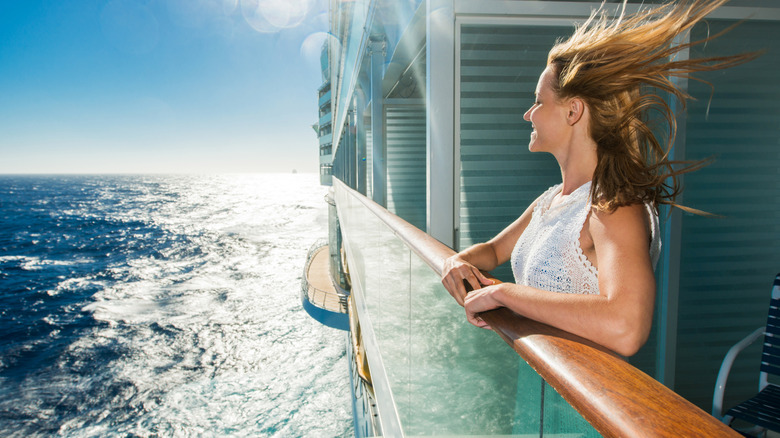Nip seasickness in the bud
Preventing seasickness is always better than trying to deal with it. With this in mind, there are things you can do before you even board the ship that’ll help you keep seasickness at bay. The first tip, courtesy of user @ship_facts, has to do with choosing the right room on the ship. Ideally, if you’re worried seasickness might be an issue, you’ll want to book a cabin in the middle of the ship on a lower deck. Bonus points if you can select a room with a balcony, as the fresh air can also help reduce the symptoms.
Meanwhile, TikTok user @thelifeofacruiser suggests that a great way to avoid feeling seasick is by getting up and staying active. Moving around will help take your mind off the swaying motion and ease the feelings of discomfort as they start to appear. They also recommend getting your hands on either nausea wristbands or scopolamine patches, which most people refer to as “behind the ear” patches. While the wristband uses acupressure to relieve symptoms, the patches correct any natural imbalances and block signals to the brain that are to blame for seasickness.
Give your body what it needs

Food is another great way to combat seasickness. Even if it sounds counterintuitive to eat before you board, keeping food in your belly will help keep things settled. User @covertrip recommends eating green apples because they’re packed with pectin, a fiber that helps neutralize the acids in the stomach. Other popular choices include bananas, bread, or rice — and staying far, far away from spicy or fatty foods.
And if in spite of all the planning and trying you still happen to get sick on a cruise, there are added measures you can take to feel as comfortable as possible while the seasickness subsides. Some of the most recommended tips include taking over-the-counter medication like Dramamine, lying down with your head pointed toward the bow, drinking lots of fluids, avoiding strong smells that might trigger nausea or vomiting, and watching the horizon. The last tip is especially important since picking a stable point to watch will help reset your equilibrium — and potentially alleviate the disorienting effects of motion sickness for good.

